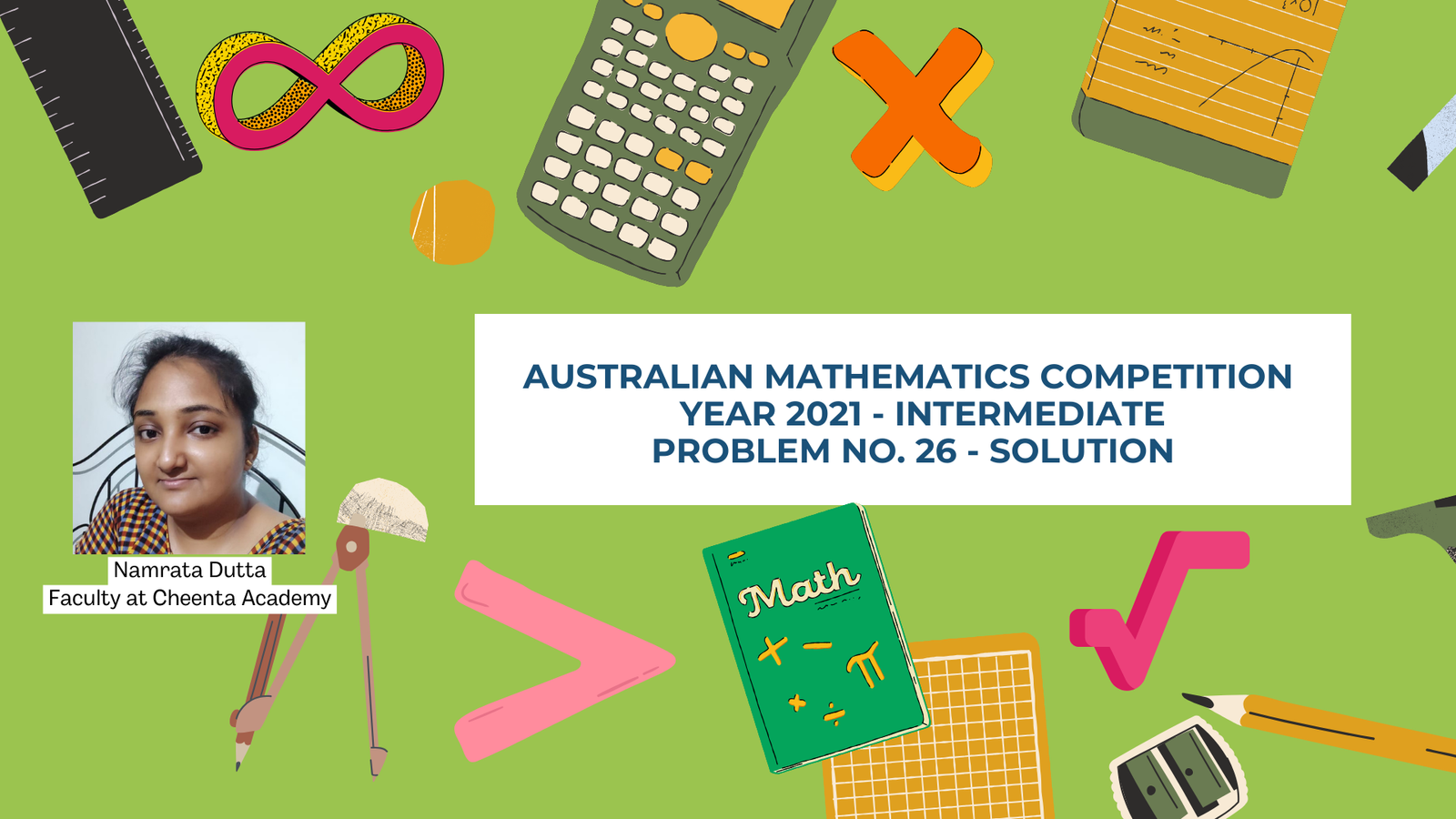Australian Mathematics Competition 2021 – Intermediate, Problem 26
 Join Trial or Access Free Resources
Join Trial or Access Free Resources Join Trial or Access Free Resources
Join Trial or Access Free ResourcesLet's discuss a problem from the AMC 2021 Intermediate: Problem 26 which revolves around basic algebra and combinatorics.
In Australian Rules football, a team scores six points for a 'goal' and one point for a 'behind'. During a game, Vladislav likes to record his team's score with a sequence of sixes and ones. There are exactly three distinct sequences which give a final score of 7 points, namely 6,1 and 1,6 and (1,1,1,1,1,1,1). How many different sequences provide a final score of 20 points?
Let x be the no. of sixes and y be the no. of ones. Thus the equation for 20 points becomes:
\( 6x + y = 20\)
As \(y\) is the number of behinds, we know \(y \geq 0\), and \(x\) must be a non-negative integer such that \(6 x+y=20\). To find all possible values of \(x\), we can solve for \(y\) :
\(y = 20 - 6x\)
Since , \( 6x \leq 20\), so the possible values of \(x\) be \(0, 1, 2\), and \(3\).
For, \(x = 0\), \(y = 20\),
For, \(x = 1\), \(y = 20 - 6 = 14\),
For, \(x = 2\), \(y = 20 - 12 = 8\),
For, \(x = 3\), \(y = 20 - 18 = 2\).
Now for each pair of \(x,y\) the number of distinct sequences is the number of ways to arrange x sixes and y ones. This is a combinatorial problem where the binomial coefficient gives the number of distinct sequences,
\({x + y}\choose{x}\) = \(\frac{(x+ y)!}{x!.y!}\)
For \(0,20\) ; \({20}\choose{0}\) = 1,
For \(1,14\) ; \({15}\choose{1}\) = 15,
For \(2,8\) ; \({10}\choose{2}\) = 45,
For \(3,2\) ; \({5}\choose{3}\) = 10.
Thus the sum of the number of sequences = \(1 + 15 + 45 + 10 = 71\).
The Australian Mathematics Competition (AMC) is one of Australia's largest and oldest annual mathematics competitions, aimed at fostering interest and excellence in mathematics among students.